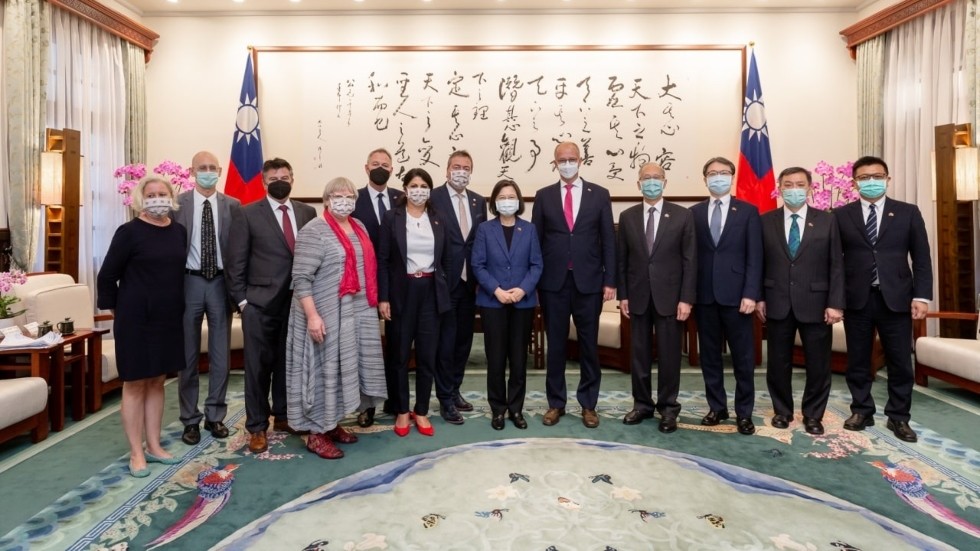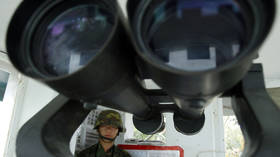
Beijing insisted German officials’ latest trip to the island would send the “wrong signals”

A delegation of German lawmakers meet with Taiwanese officials in Taipei, Taiwan, October 24, 2022. © President Tsai Ing-wen / Twitter
The Chinese government has condemned a recent visit to Taiwan by German lawmakers, urging Berlin to stop all contacts with “separatist” forces while reiterating that the island is part of China’s territory. The delegation arrived in Taipei just one day after Beijing updated its constitution to explicitly rule out Taiwanese independence.
In a statement cited by the DPA news agency on Tuesday, the Chinese Foreign Ministry called on the German officials to “immediately cease their interaction with the separatist pro-independence forces in Taiwan,” adding that such meetings send the “wrong signals” to Taipei.
Peter Heidt of the Free Democratic Party (FDP) headed up the six-member German delegation, which arrived in Taiwan on Sunday and later met with President Tsai Ing-wen.

“I would like to reiterate from the German perspective, the status quo of the Taiwan Strait could only be changed peacefully and by mutual consent,” Heidt said during the visit, calling to “continue to expand our good trade relations and continue to work together more closely in the field of science, and, above all, remain in close contact at the political level.”
Taiwanese officials were not at all receptive to Beijing’s latest comments, with Hung-Lu Chang, chair of the Taiwan-Germany Parliamentary Friendship Association, dismissing the statement as “meaningless.”
“Taiwan is a sovereign state. The parliamentary exchange with other countries is perfectly justified. They come to Taiwan because they’re in favor of us,” he added, as cited by DPA.
Berlin’s visit came less than a full day after the ruling Chinese Communist Party held its 20th National Congress, where party members voted to alter China’s constitution to include clear opposition to Taiwanese independence. Though President Xi Jinping declared that Beijing seeks “peaceful reunification” with the island, he said “the use of force” against separatist elements and outside forces was still on the table if necessary.
READ MORE:
China’s ruling party amends constitution
Tensions between Beijing and Taipei have soared in recent months, with hostilities spiking in August after a high-profile visit to Taiwan by US House Speaker Nancy Pelosi. China responded with a series of unprecedented military exercises around the island’s waters and airspace, including drills for a full-scale “blockade.”
Officially referring to itself as the Republic of China, Taiwan has been under self-rule since the end of the Chinese Civil war in 1949, though it has never gained independence from the mainland and few countries, including Germany, recognize it as a sovereign nation.




